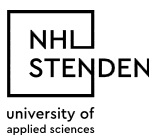Bachelor of Business Administration in International Business and Management Studies (Stenden University of Applied Sciences)
Leeuwarden, Netherlands
Reviewed by NVAO
- Valid from
- 04-04-2023
- Valid until
- 31-08-2023
Contact information
- Institution
- Stenden University of Applied Sciences
- Website
- https://www.nhlstenden.com/en
- Country
- Netherlands
Assessment report
01 7240 CeQuint-Stenden-IBMS-panel report-finalExecutive Summary
The Bachelor of Business Administration in International Business and Management Studies (IBMS) is provided in partnership by Stenden, NHL and Van Hall Larenstein Universities of Applied Sciences. The programme was assessed by NVAO, the Accreditation of The Netherlands and Flanders. NVAO convened an assessment panel which studied the self-evaluation report and undertook a site visit on 12 December 2017 in Leeuwarden, The Netherlands.
The panel expresses its gratitude for the openness and warm reception by the programme, for the meticulous provision of the relevant documents and materials, and for the excellent showcases by the students of the programme.
Standard 1. Intended internationalisation – Excellent
IBMS has actively and enthusiastically worked very hard in the past years to devise coherent and verifiable internationalisation goals, in line with the institution’s goals and supported by internal and external stakeholders. The international branch campuses and the Grand Tour are exemplary practices that stand out as unique opportunities for students to gain international experience and intercultural competences. The panel recommends that these unique selling points are highlighted in the programme’s internationalisation goals with full exploitation of the possibilities for mobility across the IBCs.
Standard 2. International and intercultural learning – Excellent
The programme’s internationalisation goals are well reflected in its intended international and intercultural learning outcomes, the student assessment methods are most suitable and the programme has demonstrated that these learning outcomes are achieved. The major accomplishment to bridge the gap from competencies to international and intercultural learning outcomes, the continued efforts to improve the difficult task of testing intercultural learning outcomes, and the excellent preparation of students to acquire intercultural skills can be regarded as international examples.
Standard 3: Teaching and Learning – Excellent
The curriculum, teaching methods and learning environment are most suitable for achieving the intended international and intercultural learning outcomes. The panel commends the programme’s pioneering role and innovative sprit in providing multiple options for gaining international and intercultural experiences, and making every effort to let the international students feel at home. Identifying key partner institutions for exchanges and involving more international guest speakers from industry would further benefit the teaching and learning process.
Standard 4: Staff – Good
The staff composition with 20 per cent international teaching staff is adequate but could be even more international. The panel recommends that the programme drafts a recruitment plan with specific actions to attract more international staff members. The staff members have sufficient internationalisation experience, intercultural competences and language skills, and are facilitated by the services provided to them. The panel commends the programme on its very committed and enthusiastic staff.
Standard 5: Students – Good
The student composition meets the programme’s objective of 50 per cent international students with 15 nationalities. To ensure that this objective will also be met in the coming years the panel recommends that the declining proportion of international students is turned around by devising a recruitment and marketing plan that includes measures such as engaging the international branch campuses, visiting secondary schools in target countries and turning alumni into ambassadors for the programme in their home country. The programme is to be commended on the achievement that all students gain several international and intercultural experiences during their study.
The 2018 merger of Stenden and NHL into NHL Stenden University of Applied Sciences and the national restructuring leading to a new International Business (IB) programme, also comprising both the Stenden and NHL International Business and Languages programmes, poses both challenges and opportunities. As NHL and Stenden are already cooperating in providing the IBMS programme the opportunities are far greater than the challenges. The panel is confident that the strong international profile and coherence of IBMS will be transferred to the IB programme.
To conclude, the panel has encountered an IBMS programme that presents a true richness in its international and intercultural goals, learning outcomes, and student experiences. The engaged and enthusiastic staff provide a programme that is valued by its students and that offers unique mobility opportunities with its international branch campuses. The award of the
ECA Certificate for Quality in Internationalisation is well-deserved and therefore strongly proposed by the panel.